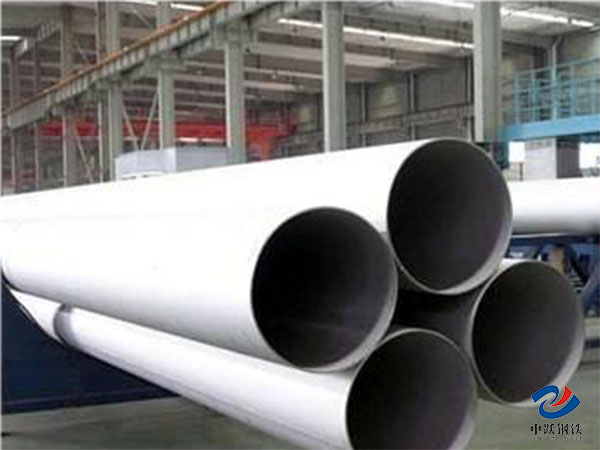Stainless steel pipes have become a popular choice in many industries because of their corrosion resistance, durability and aesthetics, and the alloying elements in stainless steel pipes provide them with unique properties, making them extremely resistant to corrosion. In this article, we will explore the advantages of stainless steel pipes in various fields.

1. Strong corrosion resistance
Principle: The main alloying elements in the stainless steel pipe (such as chromium, nickel, etc.) form a dense oxide film (passivation film) on its surface, which can effectively block the invasion of oxygen and other corrosive media, thereby greatly improving the corrosion resistance of the pipe. Even in acid, alkali, salt spray and other harsh environments, after proper heat treatment of stainless steel pipes can maintain long-term stability.
Practical application: Widely used in food, dairy, and pharmaceutical industries. In the food, dairy and pharmaceutical industries, pipes need to be in direct contact with liquids and no metal ions or corrosion products are allowed to contaminate the medium. The use of stainless steel as a transportation pipeline can not only ensure the health and safety of the product, but also reduce the maintenance cost caused by pipeline corrosion.
2. Excellent health performance
After polishing, electropolishing or mechanical polishing, the inner wall of the stainless steel pipe is very smooth. The smooth inner wall can reduce the attachment of dirt and bacteria, making the pipe easier to clean, disinfect, and maintain a long-term sanitary state.
In direct drinking water systems, the use of smooth stainless steel pipes can reduce the risk of bacterial growth in the water; In the pharmaceutical industry, where the inner wall of the pipe is required to achieve extremely high cleanliness to prevent cross-contamination, stainless steel pipes are ideal.
3. Excellent mechanical properties
High strength and pressure resistance:
The tensile strength, yield strength and elongation of stainless steel pipe are high. For example, the tensile strength of 304 stainless steel pipes is usually twice that of ordinary steel pipes, making it able to withstand greater working pressure and external shocks.
Heat and low temperature resistance:
Stainless steel has good thermal stability and can maintain excellent performance over a wide temperature range, which is particularly important for hot water pipes or piping applications in low temperature environments.
In industrial equipment, its excellent mechanical properties guarantee long-term stable operation, even under high load and high-frequency vibration conditions, without fracture or deformation.
4. Long life and low maintenance cost
Due to the strong corrosion resistance and mechanical stability of stainless steel pipes, their service life can be up to 70 years or more, and even up to 100 years in some applications.
The long life means that stainless steel pipes rarely need to be replaced or overhauled throughout their life cycle, reducing maintenance costs and operational risks.
5. Environmental protection and safety
Recyclability:
Stainless steel is a 100% recyclable material with very low pollution to the environment during production and recycling, which meets the requirements of current sustainable development.
Healthy and non-toxic:
The stainless steel pipe will not release harmful substances under normal conditions of use, ensure the purity of the conveying medium (such as drinking water or food raw materials), and protect the health of the user.
6. Look good
Stainless steel pipe surface bright, uniform color, after polishing treatment more modern, so it is widely used in architectural decoration and furniture design.
Stainless steel pipes can not only be used as structural materials, but also show unique decorative effects through different surface treatment processes (such as wire drawing, electropolishing) to meet the needs of high-end indoor and outdoor decorative design.
In summary, the advantages of stainless steel pipes cover corrosion resistance, hygiene, mechanical properties, long life, environmental protection and safety, beautiful decoration and other aspects. It is the ideal material for building structure, industrial transportation and daily life.
